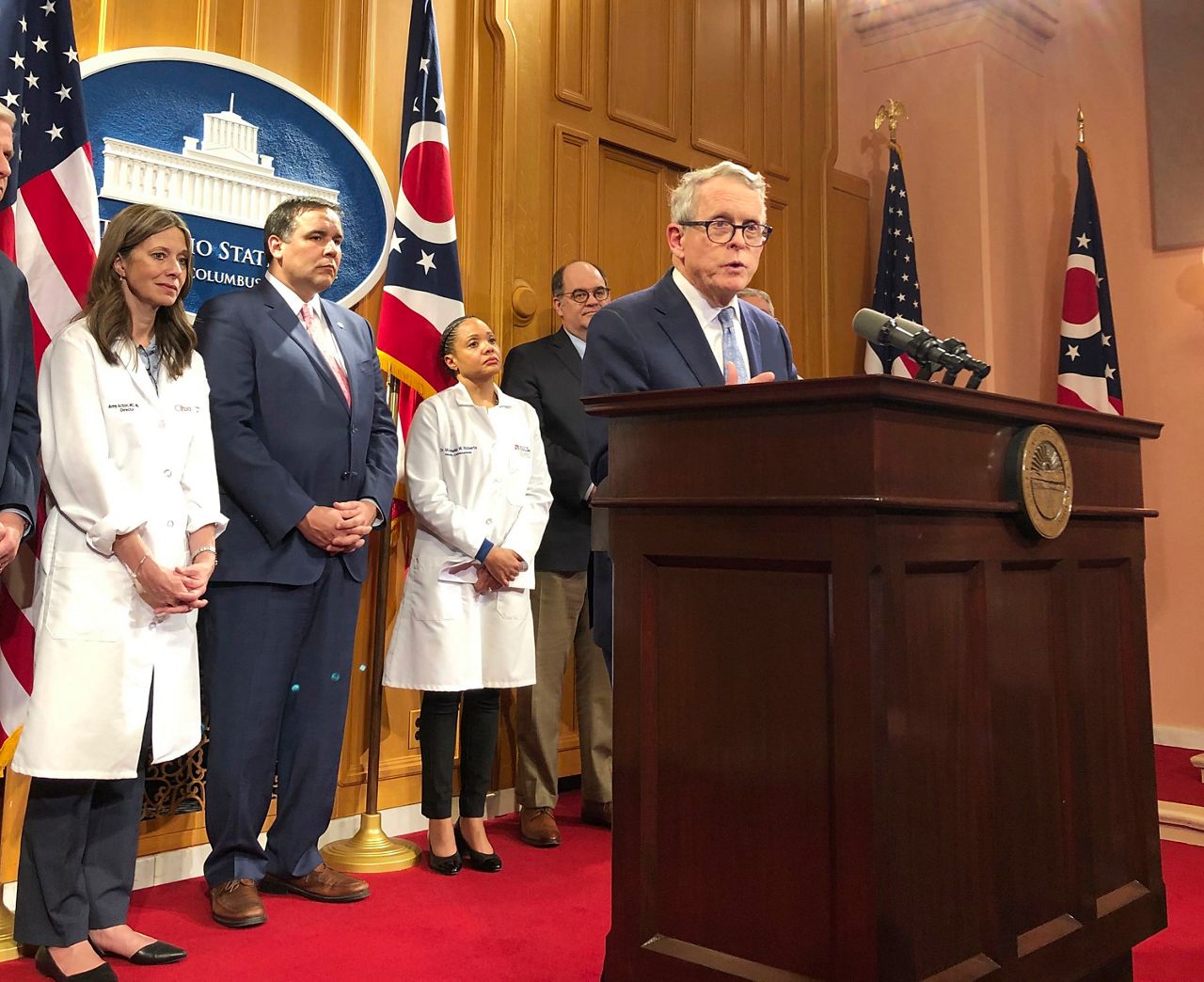WASHINGTON, D.C. — Nearly 300,000 Ohioans are classified as unemployed right now, but many Ohio businesses are struggling to fill job openings.
What You Need To Know
- Ohio will stop offering $300 federal unemployment supplement on June 26
- In Ohio and nationally, business owners are struggling to find workers
- One Ohioan explained she’s relying on the federal aid while job hunting
- Ohio lawmakers disagree over whether stopping the supplement is right
Gov. Mike DeWine recently announced that on June 26, the state will stop offering those out of work the $300 per week federal unemployment supplement approved by Congress because of the pandemic in an attempt to push people back to work.
“There’s so many places that are hiring,” Ken Hatfield, owner of Hatfield’s Goode Grub in Cleveland, told Spectrum News last month. “I’m hiring, next door’s hiring, down the street is hiring, everybody in this neighborhood, every food truck that I know is hiring.”
As pre-pandemic life starts to return, business owners like Hatfield are trying to staff back up to meet the demand.
The U.S. Labor Department reports there are a record 8 million job openings across the country.
According to the National Federation of Independent Business, “A record 44% of owners reported job openings that could not be filled.”
It’s what led Gov. DeWine to his decision to end the federal supplement, though the regular state unemployment benefits, which average $360 per week, will not be affected.
But Ohioans like Sue Collins are still relying on that bump from Washington.
“It’s helping keep us afloat, really,” Collins said in a Zoom interview from her northeast Ohio home on Monday.
Collins recently lost her job in health care administration for a reason unrelated to COVID-19, but she said the aftermath of the pandemic is complicating her job search and she’s now at risk of losing her home.
“I would be better off working, but I can’t go out and get a job at a restaurant or in retail — I physically can’t do that, that’s not what I’ve done in the past,” Collins said.
In April, Ohio’s unemployment rate was 4.7%, meaning 273,000 Ohioans were out of work.
The coronavirus relief law President Joe Biden signed in March extended the federal supplement through Labor Day, but Republicans like Ohio Sen. Rob Portman said it’s both incentivizing people to stay home and prompting businesses to embrace automation to offset the shortage of workers.
“And I know there are members of this chamber who think that by giving more money to people, this is a very smart thing to do and it’s helping everybody,” Portman said in a floor speech last week. “It’s not helping, because those jobs are not going to be there in the future.”
Sen. Sherrod Brown (D-Ohio) is one of those members.
He argues most Americans want to work and are facing actual obstacles, not being lazy.
“It’s so simple for politicians in expensive suits to blame workers for sitting home when those workers have fears of COVID, those workers can’t find childcare, and those workers frankly need a raise,” Brown said in an interview last week.
While Ohio will stop offering the federal supplement on June 26, Congress will continue to debate what to do nationally.
Portman wants to instead offer a signing bonus of $100 per week for six weeks to entice people back to work, but Democratic leadership and Biden have expressed no interest in that.




